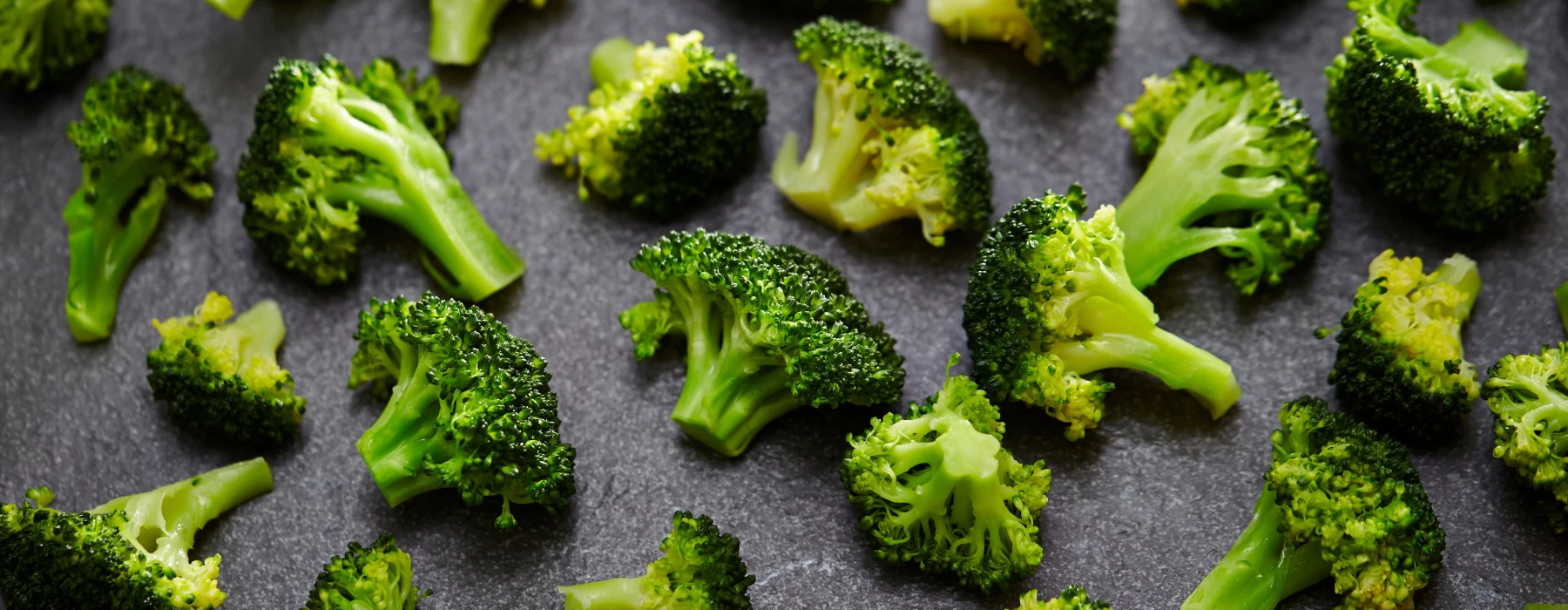
Broccoli is a cruciferous vegetable related to cabbage, cauliflower, and kale. Broccoli is excessively rich in various nutrients including fiber, vitamin C, vitamin K, iron, and potassium. It also boasts more protein than most other vegetables. It can be enjoyed both raw and cooked. Nutritional facts of raw broccoli per cup (90 grams):
|
Calories |
31 |
|
Water |
89% |
|
Protein |
2.5 grams |
|
Carbs |
6 grams |
|
Sugar |
1.5 grams |
|
Fiber |
2.4 grams |
|
Fat |
0.4 grams |
Carbs present in broccoli are mainly sugars and fibers. One cup of broccoli contains almost 10% of RDI for fiber. Proteins are the building blocks of the body, needed for growth and maintenance. Broccoli is high in protein, when compared with other vegetables. Broccoli are a rich source of numerous vitamins and minerals including, vitamin C, vitamin K1, folate, potassium, manganese, and iron. Vitamin C is needed for skin and proper functioning of the immune system. The vitamin K1, present in high amounts in broccoli, is important for blood clotting. Folate is very important for pregnant women, needed for normal tissue growth and cell function. Potassium is beneficial for blood pressure control and also prevents heart diseases. Iron is involved in many important functions, but the main is to transport oxygen in red blood cells. Broccoli is also rich in various plant compounds and antioxidants including, sulforaphane, indole-3-carbinol, carotenoids, kaempferol, and quercetin. Sulforaphane may protect against various types of cancer. Indole-3-carbinol may help fight cancer. Carotenoids contribute to better eye health. Quercetin has numerous health benefits including lowering blood pressure.
Oxidative stress gives rise to rapid growth of abnormal cells causing cancer. Broccoli is loaded with compounds which are believed to protect against cancer. Isothiocyanates is a unique plant compound found only in cruciferous vegetables. According to reports of various studies, isothiocyanates affect liver enzymes, reduce oxidative stress, decrease inflammation, stimulate your immune system, and also hinder the development and growth of cancer. The main isothiocyanates found in broccoli is sulforaphane. Although broccoli supplements are available, they may not contribute the same amounts of isothiocyanates. Bile acids are formed in the liver for the digestion of fat. These bile acids are reabsorbed and used by the body. Substances present in broccoli bind with bile acids and help in their excretion by hindering its absorption. This can lead to decreased risk of heart diseases and cancer. Broccoli contains two carotenoids lutein and zeaxanthin, which are linked with reduced risks of age related eye defects.
Although broccoli is packed with extensively beneficial nutrients, high consumption of this may lead to thyroid gland problems in sensitive people as it is considered as goitrogen. People on blood thinning medicines should consult with their healthcare provider before increasing the consumption of broccoli. The vitamin K1 present in broccoli may interfere with the medication.